Francis Bacon, 1st Viscount St Alban, was a highly influential English philosopher, scientist, jurist, political leader and author. Born into a prominent family, Bacon studied law and became a bencher at the age of 25. He went on to hold several important posts before becoming Lord Chancellor, the highest position in England’s legal profession. He was also a Member of Parliament for nearly four decades, from 1584 to 1617. His public career ended in disgrace after he was convicted for corruption. Bacon was a prolific author and his works, especially Novum Organum, were instrumental in ushering a new age in science. There is contemplation on whether Bacon was connected to Rosicrucians and Freemasons; and some even say that he faked his own death. Know about the family, life, career and death of Francis Bacon through these 10 interesting facts.
#1 HIS UNCLE WAS THE CHIEF ADVISOR OF QUEEN ELIZABETH I
Francis Bacon was born on 22nd January 1561 at York House in the Strand, London. He was the youngest child of Sir Nicholas Bacon and his second wife Anne Cooke. Francis had an elder brother named Anthony. His father also had six surviving children from his first wife Jane Ferneley. Sir Nicholas Bacon was the Lord Keeper of the Great Seal for Queen Elizabeth I of England, an officer charged with physical custody of the seal used to symbolise the queen’s approval of important state documents. Francis’s mother Anne Cooke was the daughter of prominent English humanist scholar Sir Anthony Cooke. Anne’s sister Mildred was married to the famous English statesman William Cecil, 1st Baron Burghley, who was the chief advisor of Elizabeth I for most of her reign.
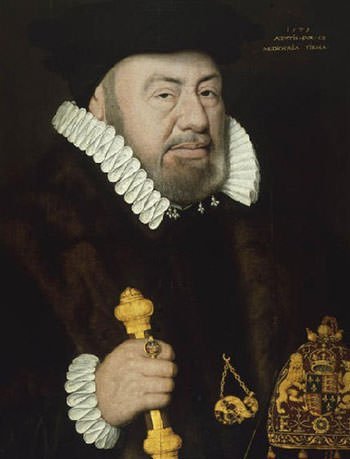
#2 HE BECAME A MEMBER OF PARLIAMENT IN 1581 AT THE AGE OF 20
Due to poor health, Francis was educated at home during his early years. He started attending Trinity College, Cambridge, in April 1573, at the age of 12. He completed his course of study at Trinity in December 1575. In June 1576, Francis enrolled in a law program at Gray’s Inn, an association for barristers and judges in London. A few months later, he left school and went abroad with Sir Amias Paulet, the English ambassador at Paris. King Henry III of France afforded him valuable political instruction. Francis visited several places; and studied language, statecraft, and civil law while performing routine diplomatic tasks. The death of his father in February 1579 forced Francis to return to England. His meagre inheritance left him broke. Fortunately, in 1581, he was elected MP for Bossiney, Cornwall, in a by-election. He completed his education at Gray’s Inn and became an outer barrister in 1582.

#3 HE WAS APPOINTED AS QUEEN’S COUNSEL IN 1596
In 1584, Francis Bacon became MP for Melcombe in Dorset, and in 1586 for Taunton. In 1586, he also became a bencher, a senior member of an Inn of Court in England. The following year he was elected as the Reader, a senior barrister of the Inn who was elected to deliver a series of lectures on a particular legal topic. In February 1593, Queen Elizabeth summoned the Parliament to investigate a Roman Catholic plot against her. Francis Bacon opposed the bill due to which the Queen was offended. His opponents accused him of seeking popularity. Bacon was then repeatedly snubbed by the Queen for prominent appointments like the office of Attorney General. However, in 1596, Bacon did became Queen’s Counsel, a lawyer appointed by the Queen to be one of “Her Majesty’s Counsel learned in the law.” Bacon, also continued to be an MP, serving for Liverpool in 1588; for Middlesex in 1593; and for Ipswich in 1597, 1601 and 1604.
#4 He SERVED AS LORD CHANCELLOR OF ENGLAND FROM 1618 TO 1621
James I succeeded Elizabeth I to the throne of England in 1603. Bacon, who had been generally neglected at the court of Queen Elizabeth, became a close aid to the new king. In the very year of his succession, 1603, James I knighted Francis Bacon. In 1613, he was appointed to the prestigious post of Attorney General. In 1618, at the age of 56, Sir Francis Bacon was made Lord Chancellor, the highest position in England’s legal profession and one of the most powerful posts in the country. Bacon served as James’s Lord Chancellor till 1621. On 12th July 1618, Bacon was created 1st Baron Verulam and on 27th January 1621, 1st Viscount St. Alban. He also served as regent of England for a month in 1617.

#5 FRANCIS BACON IS CONSIDERED THE FATHER OF THE SCIENTIFIC METHOD
At the time of Francis Bacon, science in Europe was dominated by the works of Aristotle. The most influential work of Francis Bacon, Novum Organum, was published in 1620. In it, Bacon rejected Aristotelian philosophy and came up with his famous Baconian method, which used inductive reasoning to arrive at facts after careful observation of events. This method was influential upon the development of the scientific method in modern science. Bacon is thus referred to as the father of the scientific method. Novum Organum and other works of Bacon influenced the formation of the renowned Royal Society of London. Bacon was the leading figure in the field of scientific methodology whose work played a key role in the transition in Europe from the Renaissance to the early modern era. He is thus credited for no less than being a key figure in initiating a new intellectual era.
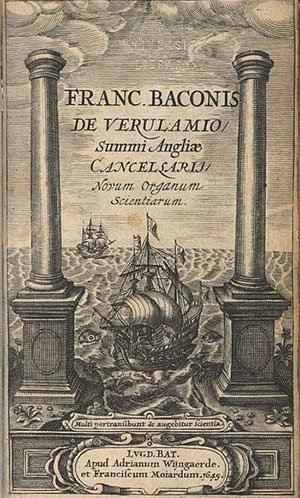
#6 HE WAS ALLEGEDLY CONNECTED TO ROSICRUCIANS AND FREEMASONS
A Rosicrucian is a member of a brotherhood claiming to possess esoteric wisdom handed down from ancient times. The name derives from the order’s symbol, a rose on a cross. The Rosicrucian movement caused excitement throughout Europe in the 17th century by declaring the existence of a secret brotherhood of alchemists and sages who were preparing to transform the arts, sciences, religion, and political and intellectual landscape of Europe. Rosicrucianism attracted many thinkers throughout Europe and many people believe that these included Francis Bacon. Freemasonry is the largest worldwide secret society and its members are known as Freemasons. It is also believed that Bacon was connected to the Freemasons. He allegedly held banquets at York House which were attended by Rosicrucians and Freemasons.
#7 HIS PUBLIC LIFE ENDED AFTER HE WAS CONVICTED FOR CORRUPTION
In 1621, Francis Bacon was charged with 23 separate counts of corruption by a parliamentary committee on the administration of the law. His lifelong enemy, Sir Edward Coke, instigated these accusations. Bacon was accused of accepting bribes. He admitted the receipt of gifts but denied that they had ever affected his judgement. He pointed out cases where he had disadvantaged the people who had bribed him. However, Sir Francis Bacon was sentenced to imprisonment in the Tower of London; fined £40,000; and declared incapable of holding future office or sitting in parliament. He narrowly escaped degradation, which would have stripped him of his titles. His imprisonment lasted only a few days and the fine was remitted by the king. This was, however, the end of Bacon’s public life. He retired to his home at Gorhambury in Hertfordshire, where he continued to write. The reason for his acknowledgement of guilt is debated. It might have been that, being sick, he was unable to defend himself, or he was blackmailed with threat of charges of sodomy.
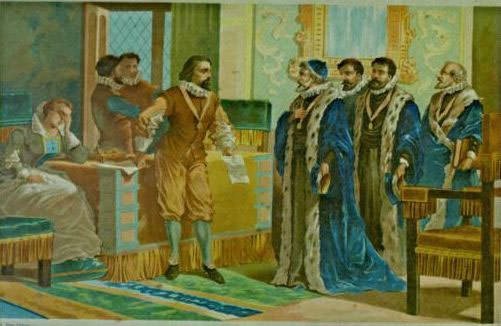
#8 THERE IS A CONSPIRACY THEORY THAT HE FAKED HIS OWN DEATH
Francis Bacon died on 9th April 1626 due to pneumonia at the house of the Earl of Arundel at Highgate, just outside London. He was 65 years old. The most popular account of his death states that while journeying to Highgate, he was suddenly inspired by the possibility of using the snow to preserve meat. He then spent too long working in low temperatures due to which he contracted pneumonia. There is also a conspiracy theory which states that Bacon had gone into debt and to avoid paying it, he faked his own death. He allegedly crossed the English Channel, and secretly travelled in disguise through various countries utilizing the secret network of Freemasons and Rosicrucians. Conspiracy theorists suggest he continued writing for decades under pseudonyms.
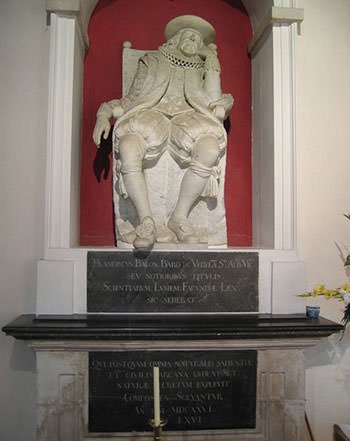
#9 HE DISINHERITED HIS WIFE AFTER HE LEARNED OF HER AFFAIR
When he was 36, Bacon courted Elizabeth Hatton, the granddaughter of his uncle William Cecil. She was a 20 year old widow. However, Hatton rejected Bacon and instead married his rival Edward Coke. At the age of 45, Francis Bacon married Alice Barnham, the 14-year-old daughter of a well-connected London MP. Alice is believed to have been a woman of extravagant tastes accustomed to a luxurious lifestyle. Bacon’s descent into debt apparently led to increased fiction in their marriage. She also had a secret romantic relationship with Sir John Underhill. Upon learning of her affair, Bacon rewrote his will and revoked all the lands, goods and income he had left her. Alice married John Underhill after Bacon’s death.
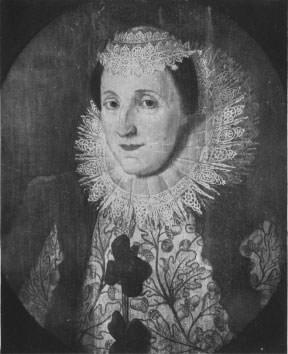
#10 SIR FRANCIS BACON WAS MOST PROBABLY HOMOSEXUAL
There is a debate about the sexual inclination of Francis Bacon with many historians believing that he was primarily attracted to men; and others disputing this suggestion. Facts supporting the theory include his marriage at 45, extremely rare for the time; contemporary figures including renowned 17th century biographer John Aubrey and Sir Simonds d’Ewes, bluntly mentioning that Bacon was a homosexual; and a letter from his mother which contains language that suggests the same. Francis’s brother Anthony Bacon, while in France, was charged with sodomy in 1586 for having sex with his page. Though the punishment was burning at the stake, Anthony didn’t suffer any consequences due to the intervention in 1587 of King Henry VI. Simonds d’Ewes wrote that there had been a question of bringing Francis to face a similar trial. Disputers consider these evidence inconclusive; and site his marriage and parts of some of his works to argue the opposite.

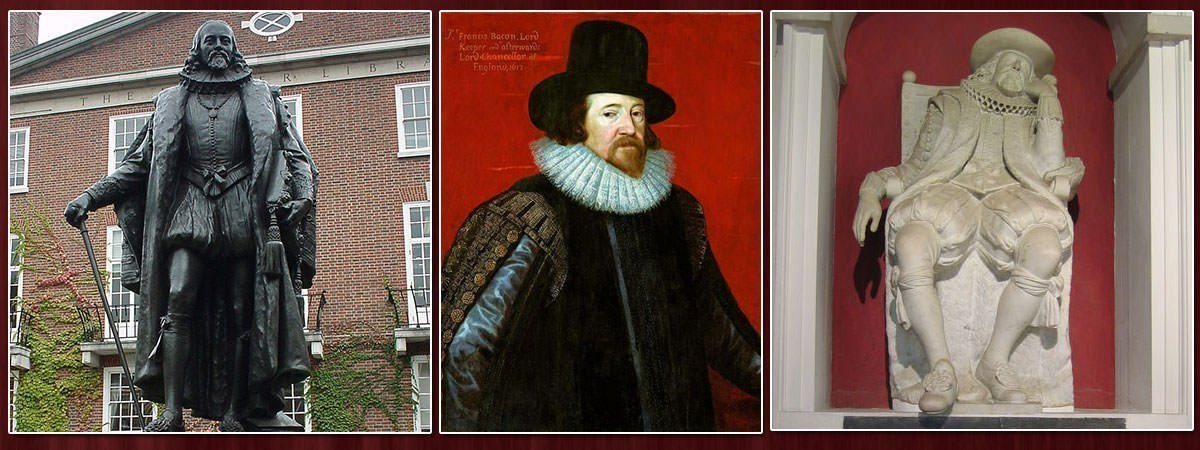
”sir Francis Bacon was most probably homosexual” uhm… yes?